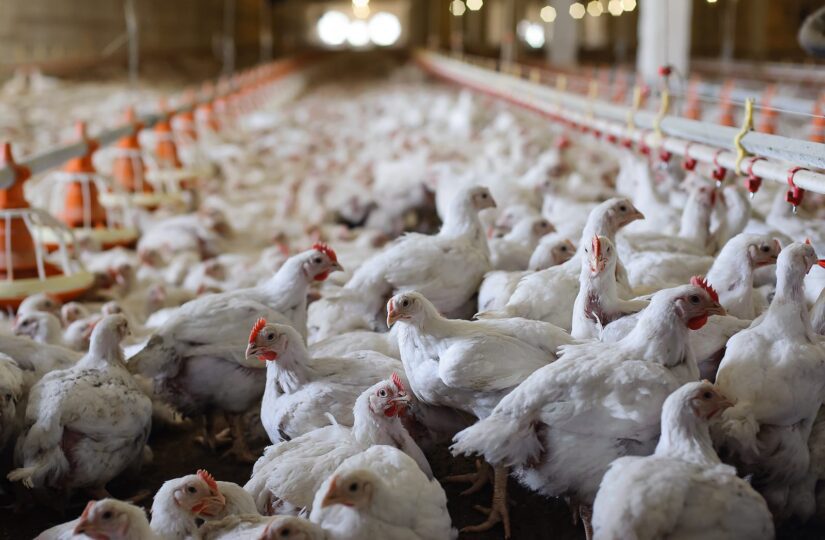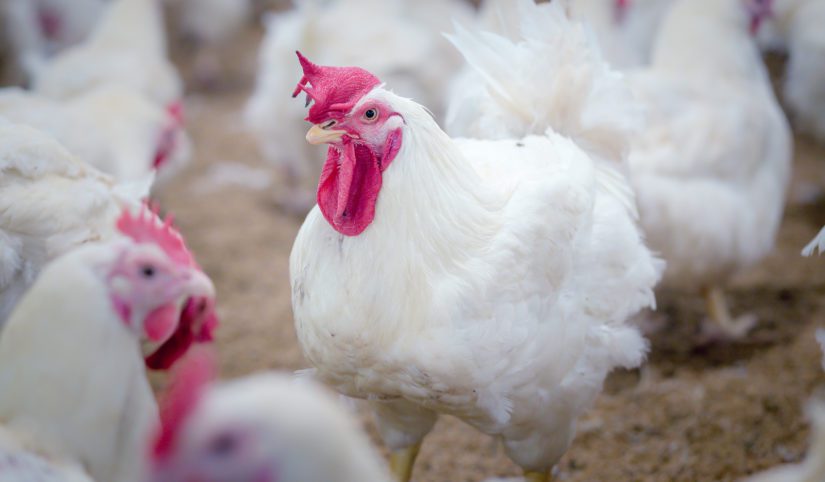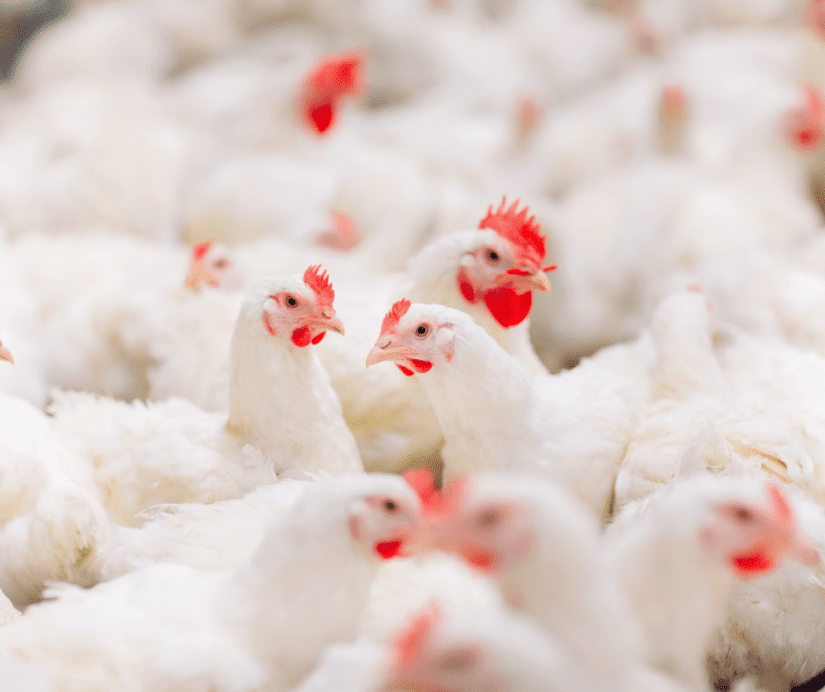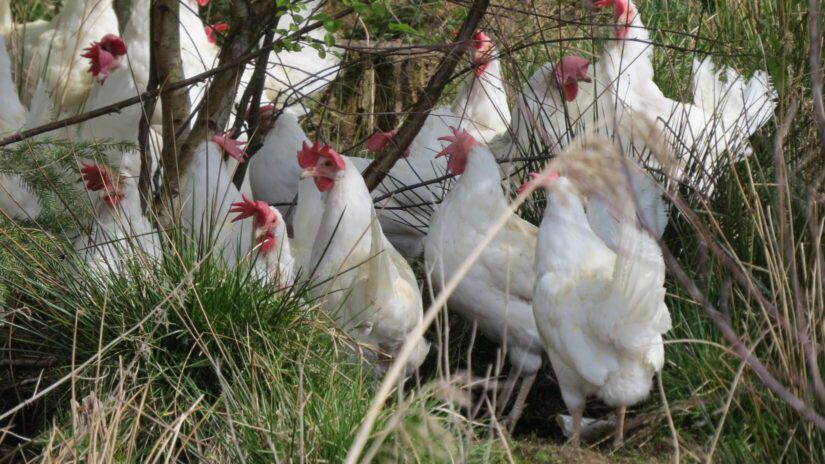A chicken raised for meat is called a broiler chicken. The total number of chickens raised for meat in Canada is estimated at 107.9 million. There are over 7,000 farms that raise chickens for meat across Canada.

Life of a broiler chicken
Breeder farm
Broiler breeder farms raise female (hen) and male (rooster) birds, who are the parents of broiler chickens. These hens and roosters mate to produce fertilized eggs. These eggs are sold to broiler hatcheries.
Hatchery
When the eggs arrive at the hatchery, they are placed in incubators where they are kept warm and automatically turned gently at regular intervals. It takes 21 days for a chick to hatch from an egg. Chicks are placed in crates and transported by truck to a chicken farm, where they will be raised until they are ready for market.
A new system, where eggs are transferred directly from the breeder farm to the chicken farm to hatch is being trialed on some farms. This is beneficial for chicks as newly hatched chicks do not need to be transported, which is a stressful experience.
Chicken farm
Chicks born at the hatchery arrive at the chicken farm at less than 48 hours old. They will grow from chicks to chickens, ready for the market. In Canada, chickens raised for meat are not kept in cages. They live in a free-run barn, meaning they can roam throughout the barn but remain indoors. Some farmers may allow their chickens to go outside, weather permitting (also called free-range chickens). Look for free-range or animal welfare certified chicken if you want to support chickens having access to the outdoors.
Broiler chickens have been bred to grow very quickly (especially their breast muscles) and reach market weight (around two kilograms) at just six to eight weeks of age. Chickens ready for market will be removed from the barn and transported to the processing plant for slaughter.

What are the main concerns for broiler chicken welfare?
Genetics
Broiler chickens have been bred to grow as quickly as possible, over four times as fast as they did only 50 years ago. While faster growth means more efficient meat production and more birds raised in the same amount of time, it comes at a painful cost to the birds. With such a focus on rapid growth, especially in the breast muscles, these top-heavy birds may get to the point where their legs can no longer support their body weight, leading to lameness. These chickens then struggle to move around the barn to access food and water. They suffer from breast blisters and leg and foot deformities that cause pain and may lead to death.
Feather pecking and cannibalism
While the causes of feather pecking and cannibalism are not clear, it is known that these behaviours cause pain and distress to affected birds. Various factors are thought to influence this behaviour, including high stocking density, inability to perform natural behaviours, and poor air quality or lighting programs.
Overcrowding
Broiler chickens are raised in large barns with artificially controlled lighting and ventilation. Unlike egg-laying hens, chickens raised for meat in Canada are never housed in cages. In other words, all broiler chickens are cage-free and free-run. However, even without cages, broiler chickens are often overcrowded. High stocking densities make it almost impossible for chickens to express their instinctive, natural behaviours like scratching, dustbathing and foraging.

Support a better life for broiler chickens
By choosing higher-welfare food products, you can help broiler chickens lead better lives and support the farmers who care for them. Learn more about shopping for higher-welfare food.
We are always working to build a better future for farmed animals in B.C. and across Canada, but we need your help. Take action for farmed animals today.

Additional resources
- Code of Practice for the Care and Handling of Chickens, Turkeys and Breeders
- Fun facts about chickens!
- Caring for backyard chickens
FarmSense e-newsletter
Are you passionate about farmed animal welfare and want to help improve the lives of broiler chickens? Use this form to sign-up for our FarmSense e-newsletter and stay up-to-date on our initiatives!
